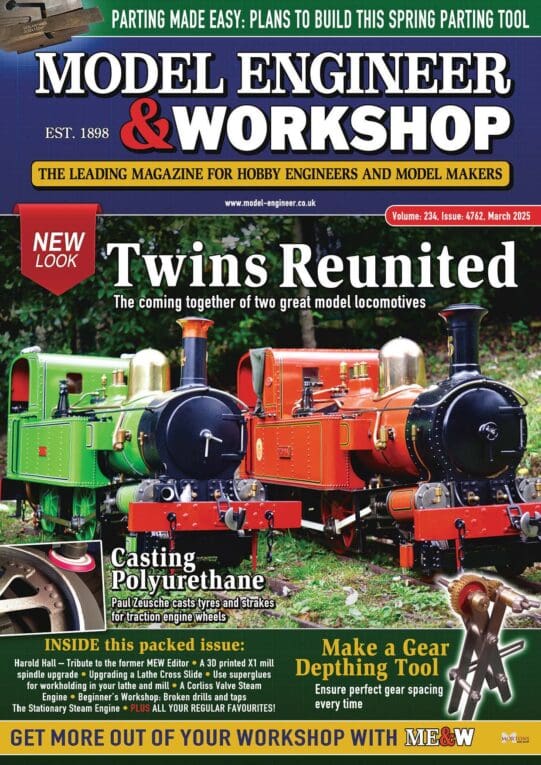Pete, I have never once said that I don't worry about standards, or shall we say the standard of my work which is always done to the very best of my ability and scrapped if I am not entirely satisfied. I would like to think that, if not 'exhibition' standard it at least looks pretty good and not at all 'amateurish'. In theory, it is possible to work down to 0.0001" on the J&S 540 or 0.0002" on the J&S 1310 but if I was to work to these limits they would only hold for the time they were produced because I do not work in a temperature controlled environment, so both the work and micrometer would probably measure different dimensions depending on the time the measurement was taken. That is partly why tolerances exist and are quoted on drawings, or were when I was an apprentice but that's well over fifty-years ago now. I have no idea what happens in industry these days with the advent of CAD/CAM because I have never dealt with it. So to me, if it looks right, fits right and works right, then it is right.
The point I was really trying to make, and admittedly this is an assumption, is that we are all practical men and only need our machines to run reliably when we switch them on, we are not in the workshop to redesign them or their power supplies, but we may suggest improvements from time to time. All the clever stuff, the design, the engineering and manufacture has been done by the professionals and is encompassed in the machine when we purchase it. We have paid for the professional engineer's skill and merely use the tools he has produced for our own purposes, including the converters and inverters. Again, I must admit it has never once crossed my mind to fit power factor correction capacitors to the distribution board in my workshop for motors running under no-load or that any phase in-accuracy would effect the finish on my work because for all practical purposes it hardly matters, IMO.
Yes, I am very lucky to have a number of machines that were once found in light industrial or educational establishments but this is because, when Mrs.Thatcher was busy closing down a great deal of traditional British industry and the educational curriculum was changing, they could hardly give the stuff away. Working nights in various parts of the country gave me the opportunity during the day to visit factory liquidation sales. I have seen auctioneers almost crying at the prices they were having to knock down. For example, I once bought a fully equipped Brown & Sharp No.13 universal grinder for fifty quid and it cost me £250 to have it shipped home! I still have the thousands of pounds worth of Burnerd collet chucks and Crawford collets that came with it but sold it on when I acquired the J&S.
I don't pretend to be anything more than a back-shed amateur, but I have every respect for the professional engineer's knowledge and technical education and I am very envious of it because we didn't even get the chance to go to university in my day, although I hardly think that a lot of it is relevant to the practical 'common-sense' issues we deal with in our home workshops and hobby projects.
 Pete..
Pete..





